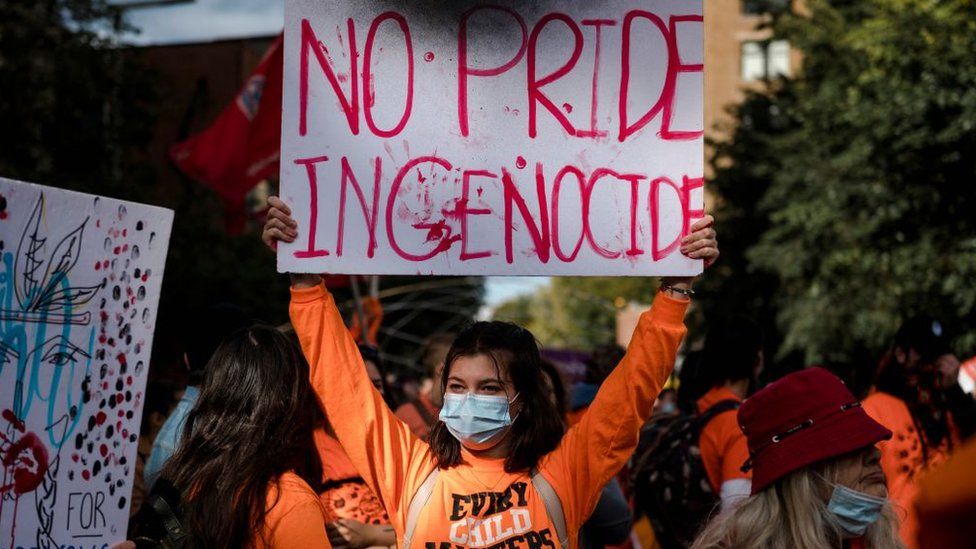CANADA
Dozens more graves found at former residential school sites
 GETTY IMAGES
GETTY IMAGESAn indigenous nation in Canada says it has discovered evidence of 54 unmarked graves at the sites of two former residential schools in Saskatchewan.
Keeseekoose First Nation said the graves were found nearby Fort Pelly and St Phillip's residential schools.
It is the latest finding amid a wave that has triggered a national debate over the residential school system.
Indigenous nations across the country have found evidence of more than 1,100 such graves since last spring.
Just weeks ago, the Williams Lake First Nation announced it had found evidence of 93 unmarked graves on the grounds of St Joseph Mission, a former residential school.
These government-funded boarding schools were part of a policy meant to assimilate indigenous children and destroy indigenous cultures and languages.
Survivors had long testified that children who died at the schools were buried in unmarked plots, now being rediscovered throughout the country.
Ted Quewezance, project leader of the Keeseekoose's search, said ground-penetrating radar technology suggested there were 42 grave sites at the grounds of Fort Pelly Residential School, and an additional 12 at St Phillip's.
At a news conference on Tuesday, Mr Quewezance said the discovery matched testimony of residential school survivors.
"It was not that they could not hear, but they did not believe our survivors," he said.
Fort Pelley was open as a residential school from 1905 to 1913.
The St Phillip's building was used as a boarding house for students from 1902 to 1914 before it was shut due to poor conditions. It was re-opened in 1927 as a residential school and, like the majority of Canada's residential schools, was run by the Roman Catholic Church.
Both were in eastern Saskatchewan.
More than 130 residential schools were operated in Canada between 1874 and 1996. A cornerstone of the government's policy of forced assimilation, some 150,000 First Nations, Métis and Inuit children were taken from their families during this period and placed in the state-run boarding schools.
Conditions inside the schools were abhorrent. School buildings were often poorly built, poorly heated and unsanitary, and children were subject to emotional, physical and sexual abuse.
The landmark Truth and Reconciliation Commission (TRC) report, released in 2015, concluded Canada's residential school system amounted to "cultural genocide".
At least 3,200 children died while attending a residential school, though advocates have said this number is likely much higher. Former TRC chair Murray Sinclair estimated some 6,000 children may have never made it home.
If you or someone you know needs support related to these discoveries, you can contact The Indian Residential Schools Crisis Line (1-866-925-4419) 24 hours a day

No comments:
Post a Comment